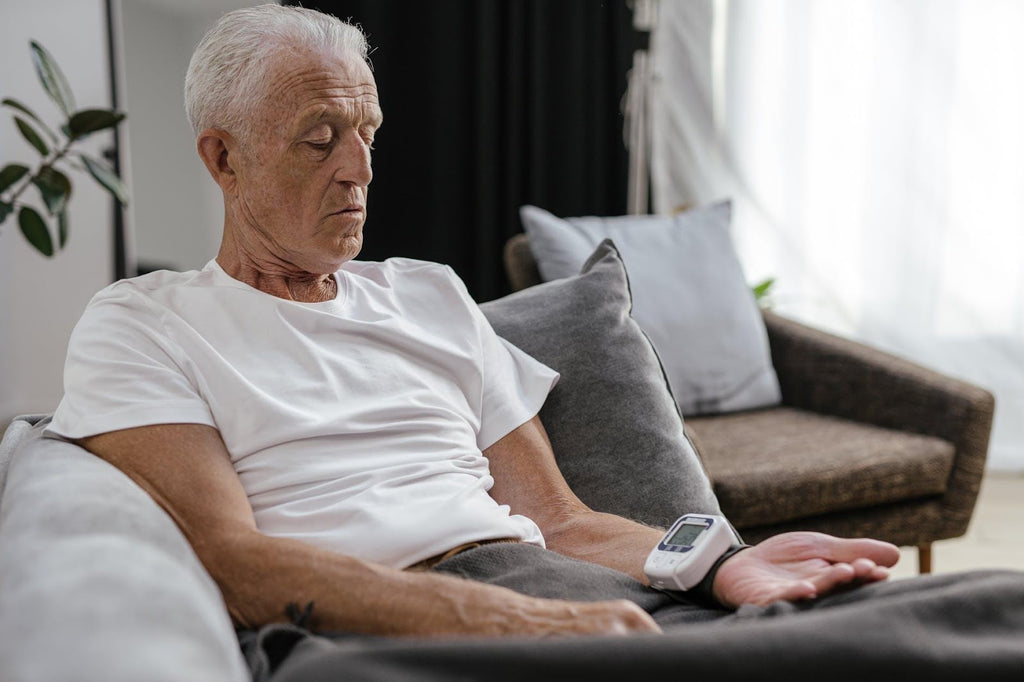Hemorrhoids primarily affect pregnant women and people older than 50 years of age. However, they can affect people of any age or gender. More commonly known as piles, hemorrhoids are formed when the veins in your rectum and anus swell due to excessive pressure. Hemorrhoids cause significant pain and discomfort and can hinder your ability to perform daily tasks.
How Long Do Hemorrhoids Last?
The duration of hemorrhoids from formation to healing varies from person to person. In many cases, minor hemorrhoids heal on their own in a few days or weeks. However, larger hemorrhoids can take months to get treated.
For many pregnant women, hemorrhoids seem to go away after giving birth. While for others, they may only develop after they’ve given birth. Their recurrence is also possible after treatment.
What Causes Hemorrhoids to Return?
Once you are recovered, it’s essential to make necessary lifestyle and dietary changes to avoid the recurrence of hemorrhoids. Here are the causes of hemorrhoid recurrence:
- Chronic constipation and diarrhea
- Pregnancy
- Lack of fiber in your diet
- Obesity or being overweight
- Aging muscles
- Anal intercourse
- Overuse of laxatives or enemas
- Sitting for prolonged periods on the toilet
- Straining during bowel movement
Home Remedies for Treating Hemorrhoids
These remedies might come in handy if you’re searching for ways to treat your symptoms at home.
1. Sitz Bath
A sitz bath involves taking a bath with (nearly) hot water. It relieves the inflamed anal tissues and reduces the pain and itching associated with hemorrhoids. A bath for over 15-20 minutes after each bowel movement or 2 to 3 times a day work best for hemorrhoidal relief.
2. Witch Hazel
Witch hazel is a natural anti-inflammatory available as a liquid or gel which can be applied directly to external hemorrhoids. It provides relief from itching and pain and has the added benefit of reducing swelling.
Applied after a warm sitz bath, it works wonders for alleviating the symptoms of hemorrhoids.
3. Ointments, Creams, Wipes, and Anti-Inflammatories
Various ointments, creams, and wipes are the first cure that is opted by people when they start experiencing hemorrhoidal pain and itching. Their application lubricates the area and produces a relaxing or numbing sensation. These ointments can not entirely heal the hemorrhoids but bring about symptomatic relief.
4. Cold/Hot Compress
Applying an icepack or a hot pad directly to the inflamed part of the anus for 10-15 minutes, 2-3 times a day will promote healing.
5. Loose Cotton Clothing
Replacing tight, polyester clothes with soft, breathable cotton can help keep the anal area clean and dry. Doing this can reduce symptoms and the risk of infections.
6. Coconut Oil
Coconut oil, with its strong anti-inflammatory properties, can reduce inflammation and swelling. Its antibacterial properties speed up the hemorrhoid healing process. Coconut oil has a laxative effect which helps in relieving constipation.
Effect of High Blood Pressure on Hemorrhoids
To a non-specialist, it might seem like a valid concern that high blood pressure automatically translates to increased bleeding in hemorrhoids. But multiple studies have confirmed hemorrhoids are not related to portal hypertension.
Hemorrhoids have no direct communication with any of the major branches of the portal venous system; hence their bleeding is not related to high blood pressure.
In another instance, 188 patients with portal hypertension were monitored to determine the relationship between hemorrhoids and hypertension. Although massive bleeding hemorrhoids occurred in 6 of these patients when all internal and external factors were considered, it was deduced that high blood pressure did not directly affect the bleeding in hemorrhoids.
Medicines For Treating Hemorrhoids:
Fortunately, there are a lot of prescription and over-the-counter medicines available for treating or reducing the symptoms of hemorrhoids. Unfortunately, they come with their own sets of side effects.
1. Over-the-counter Medicines
OTC medicines in the form of topical creams, ointments, pads, and suppositories help in temporarily relieving the pain and itching. Witch hazel, phenylephrine, lidocaine, or hydrocortisone are some of the primary ingredients present in them.
2. Prescription Medications
Higher doses and stronger medicines are required when the hemorrhoids are particularly painful or larger than usual. Your doctor may treat you with prescription-strength steroids and numbing agents such as hydrocortisone and pramoxine topical preparations.
When Medicine No Longer Helps
If the bleeding during bowel movements worsens or the hemorrhoids have not improved after a week of home care, consult your health care professional immediately. Rectal bleeding can be a reason for multiple disorders, including colorectal cancer and anal cancer. Therefore, don't assume that your rectal bleeding is because of hemorrhoids until you have experienced changes in your bowel movements or consulted a doctor.
If the home remedies and the OTC medicines don't work, minimally invasive procedures (such as those performed in a doctor's office) are your next option. The last resort is a surgical procedure to remove the hemorrhoids when all else fails. But it, of course, comes with its own sets of challenges.
"The surgery is simple, but the recovery is miserable," said Dr. Alexis Grucela, M.D., the chief of colorectal surgery at Northern Westchester Hospital in New York. "Before we go down that road, we make sure we've maximized every other option," he added.
Preventing the Hemorrhoids:
Modify your dietary habits to include whole grains, fruits, vegetables, and legumes. They ensure you're getting a high fiber intake which keeps everything moving smoothly. Adequate fluid and fiber intake are equally essential for keeping the bowels soft and easy stool removal.
According to Dr. Grucela, a good bowel regimen is important for treating hemorrhoids. She recommends limiting the time spent on the toilet, not bringing any reading materials in, and leaving the phone at the door so you're not inclined to sit in that unhygienic place for long and can stop the hemorrhoids from causing further damage.

